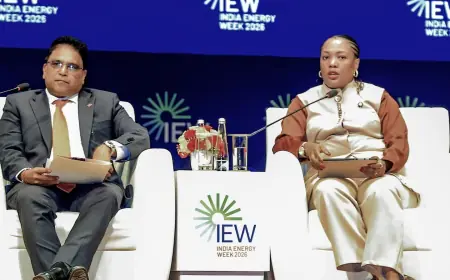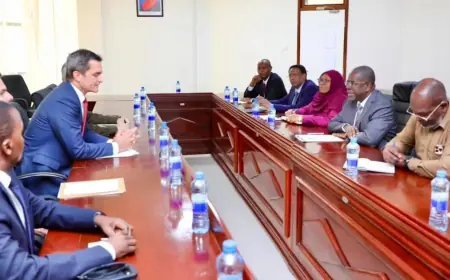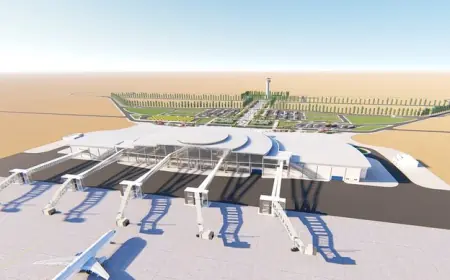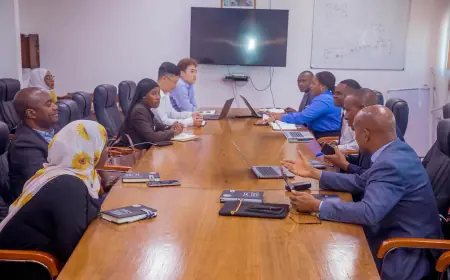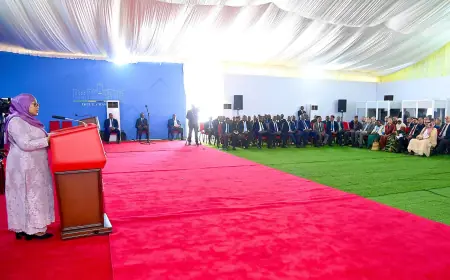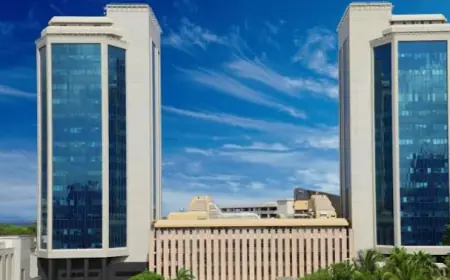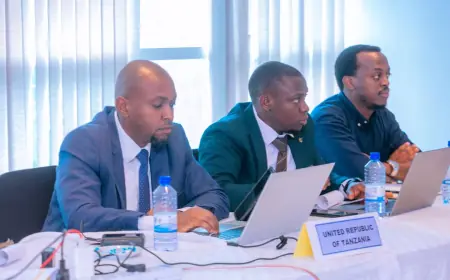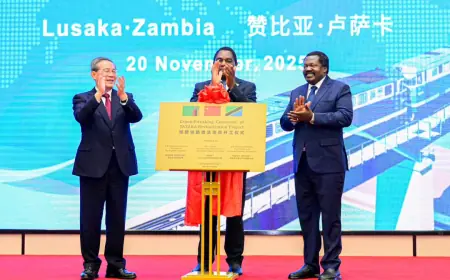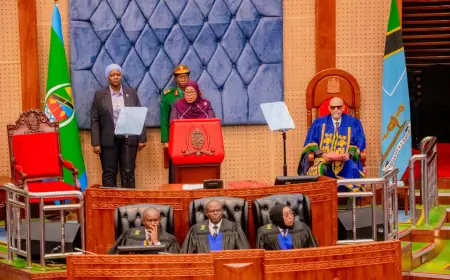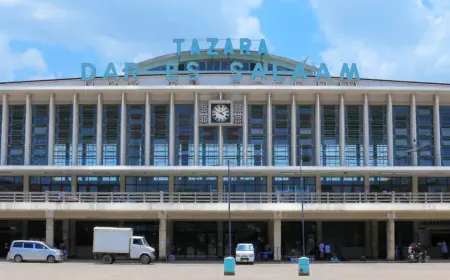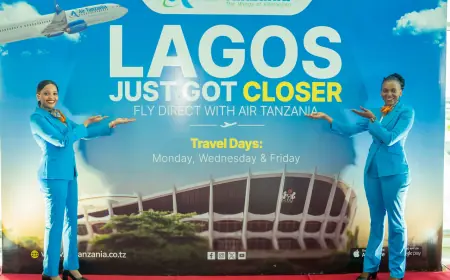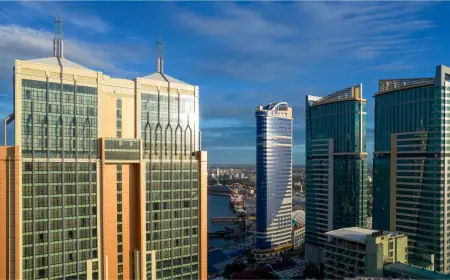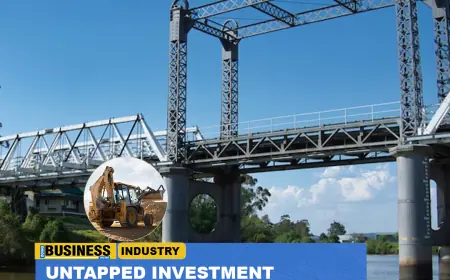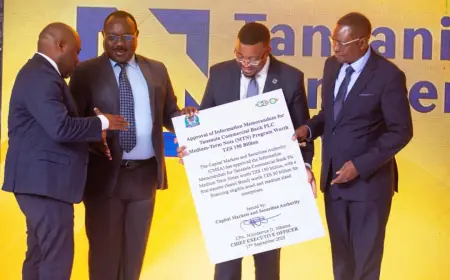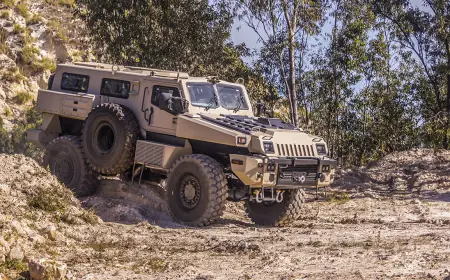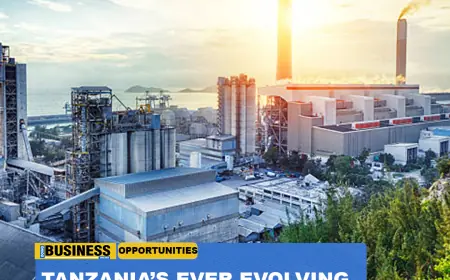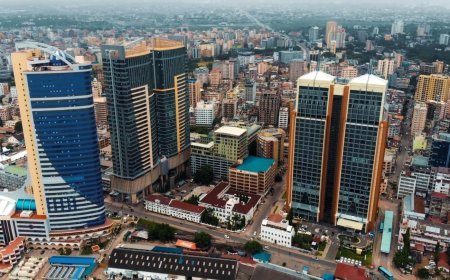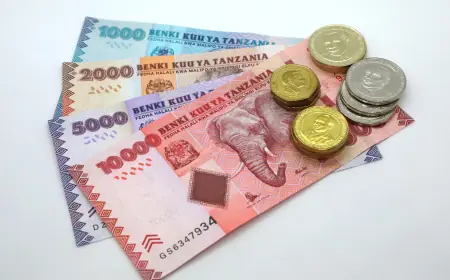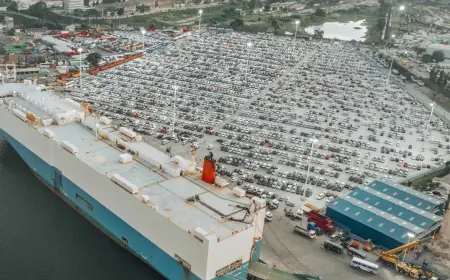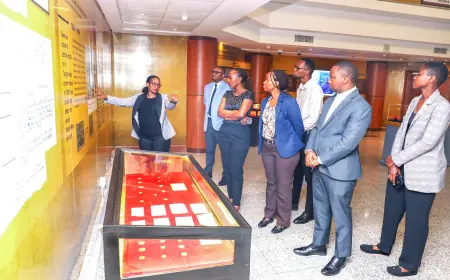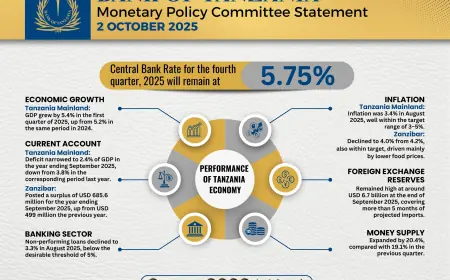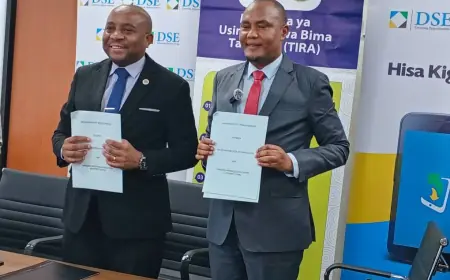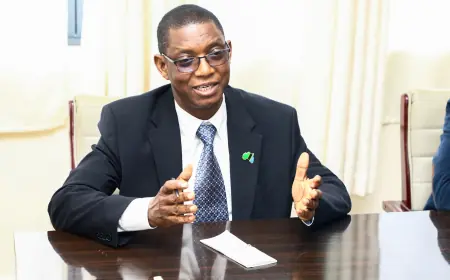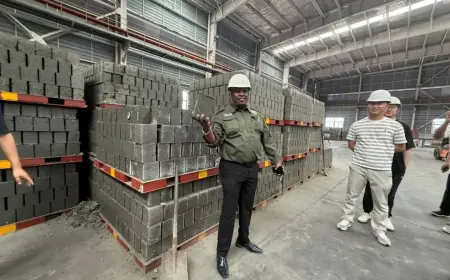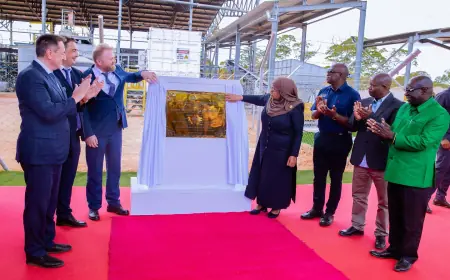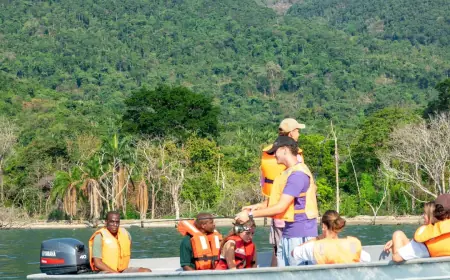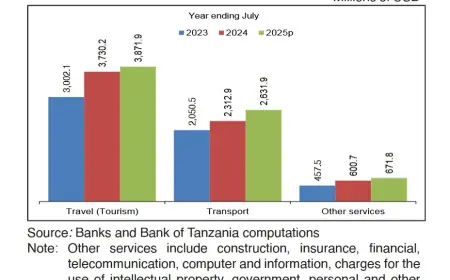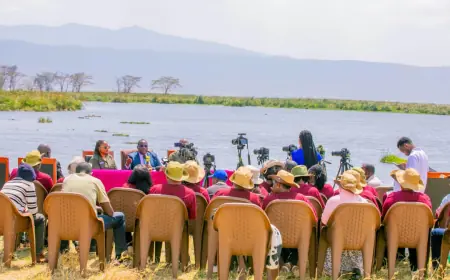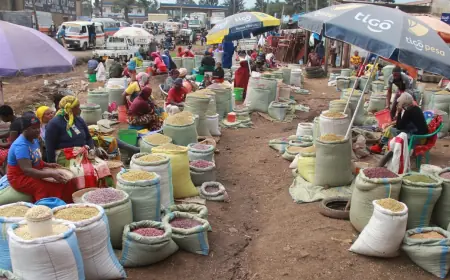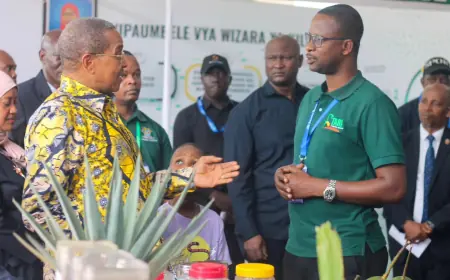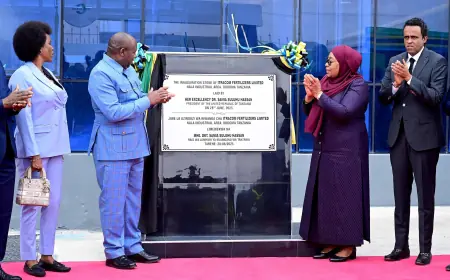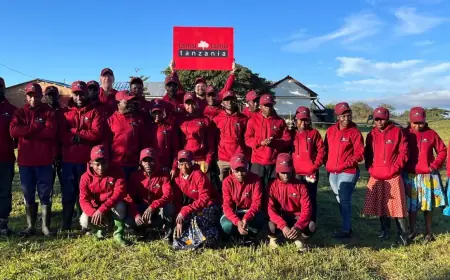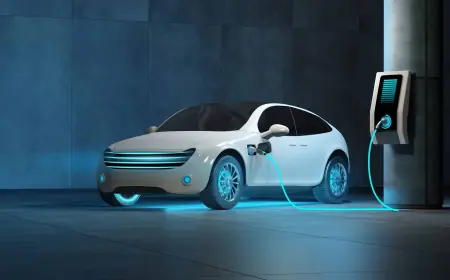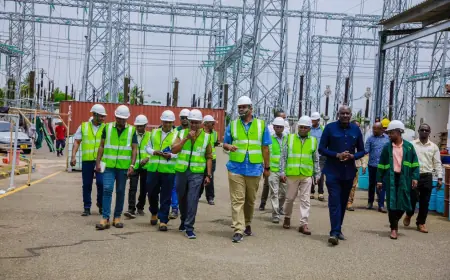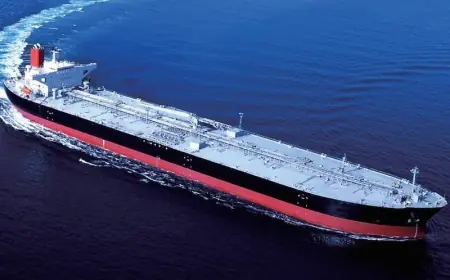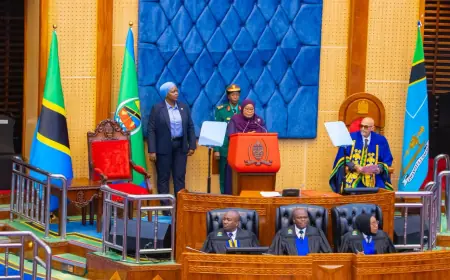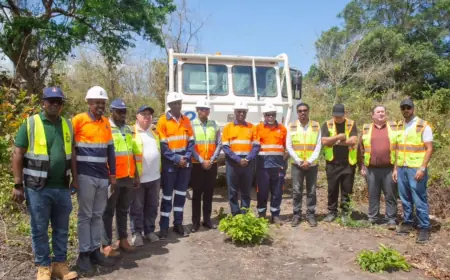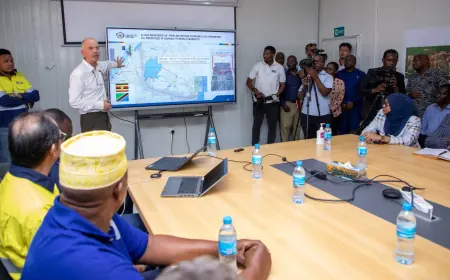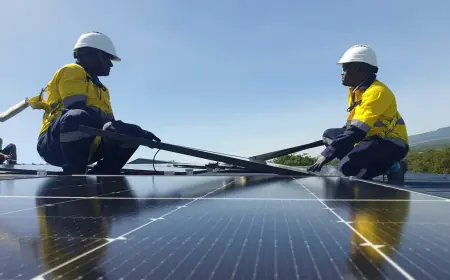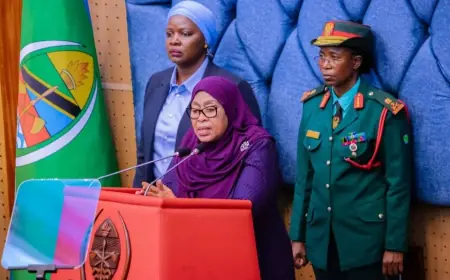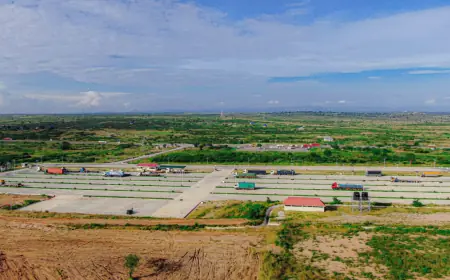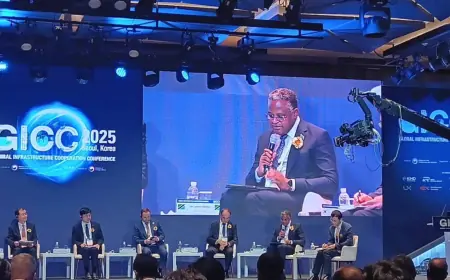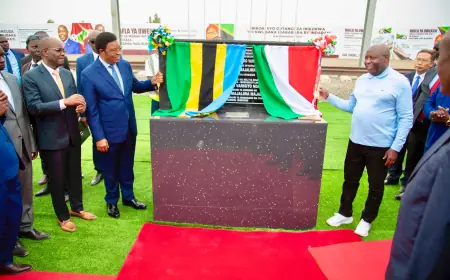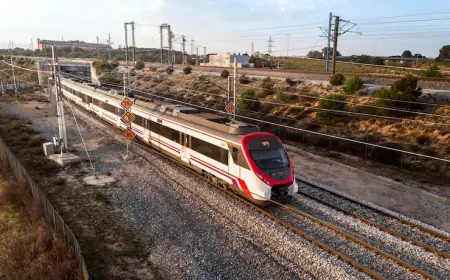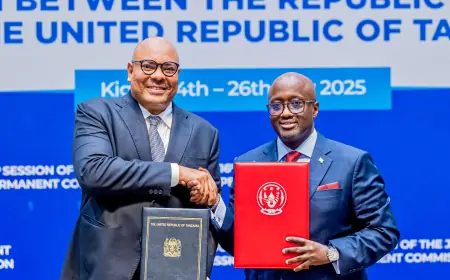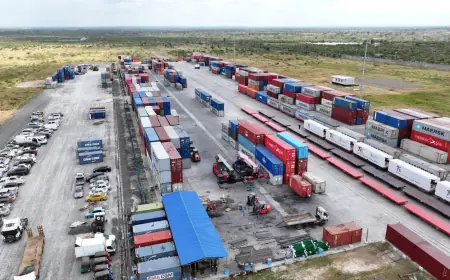Tanzania flags off electric freight train operations
The Tanzania Railways Corporation (TRC) confirmed in a statement that the maiden electric freight train, comprising 10 wagons and carrying approximately 700 tonnes of various goods, departed from Pugu Station near Dar es Salaam and arrived in Ihumwa, Dodoma, by midday Friday, June 27, 2025
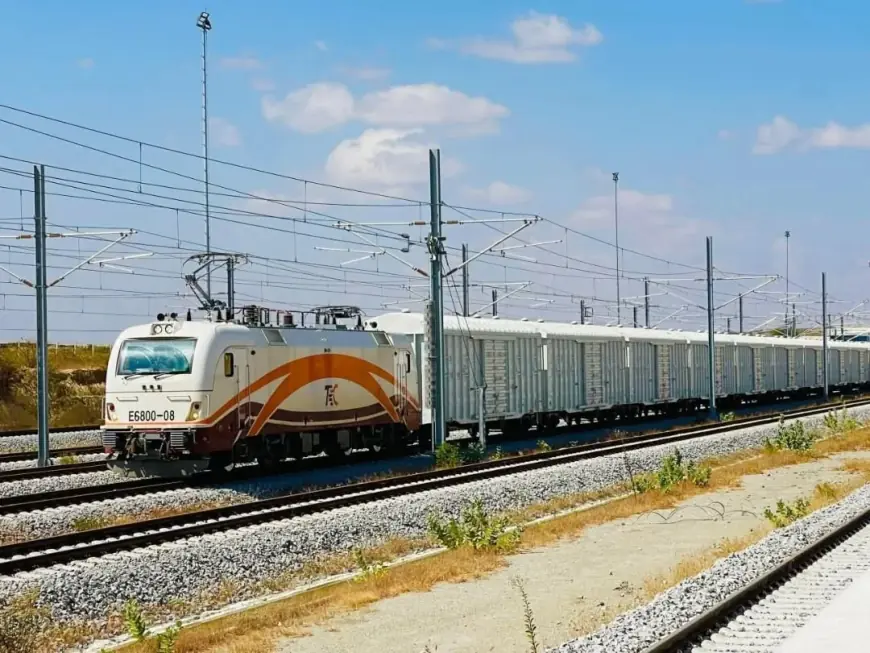
Dar es Salaam. Tanzania has made a historic leap in transport modernisation with the official launch of its first electric freight train operations on the Standard Gauge Railway (SGR), linking the Port of Dar es Salaam with the administrative capital, Dodoma.
The launch took place on Friday, June 27, 2025, marking the beginning of commercial cargo movement using electric locomotives—the second of its kind in sub-Saharan Africa.
The only other electric cargo train services in the region are between Addis Ababa and Djibouti, launched in 2018.
Kenya’s SGR, launched in 2017, remains reliant on diesel locomotives for both cargo and passenger services.
The Tanzania Railways Corporation (TRC) confirmed in a statement that the maiden electric freight train, comprising 10 wagons and carrying approximately 700 tonnes of various goods, departed from Pugu Station near Dar es Salaam and arrived in Ihumwa, Dodoma, by midday.
This inaugural run not only signifies a key transition from road to rail for cargo transportation but also positions Tanzania at the forefront of railway electrification on the continent.
The SGR freight service, which complements the ongoing electric passenger operations launched in June last year, is set to play a transformative role in the country’s logistics sector.
According to TRC’s Director of Business Development, Mr Daimon Mwakaliku, the service will initially operate with one freight train daily, departing Pugu at 4:00 am and arriving in Dodoma by midday.
Increased cargo-carrying capacity
Each freight wagon on the SGR has a capacity of up to 75 tonnes, nearly double the payload capacity of the ageing metre gauge railway (MGR) system, whose wagons typically carry 40 tonnes.
The new system’s capacity and electric propulsion are expected to significantly reduce turnaround times, increase volumes moved per trip, and cut down transport costs for shippers, traders, and logistics companies.
The approval to commence operations follows the successful testing and certification of 264 freight wagons by the Land Transport Regulatory Authority (LATRA).
These include 200 container flat wagons and 64 general-purpose box wagons, all now cleared for commercial deployment.
TRC officials confirmed that freight services will gradually expand as operational systems stabilise and capacity builds up.
TRC’s Director of Operations, Mr Focus Makoye Sahani, said the launch marks a significant step in a carefully phased rollout strategy.
“We are proceeding cautiously to ensure that operational systems and human resource capabilities are fully aligned for sustainable service delivery. Passenger services have already gained momentum, and we expect the freight segment to follow a similar trajectory,” he said.
This development is not only a critical component of Tanzania’s national transport master plan but also a strategic asset for boosting regional trade integration.
The SGR is expected to extend connections to landlocked neighbours including Burundi and the eastern Democratic Republic of Congo, offering them a fast, efficient, and lower-emission corridor to global markets via the Port of Dar es Salaam.
As Tanzania seeks to diversify its cargo movement options and reduce overdependence on road transport—often hampered by traffic congestion, road wear, and safety risks—the launch of the SGR freight service is expected to revolutionise inland logistics.
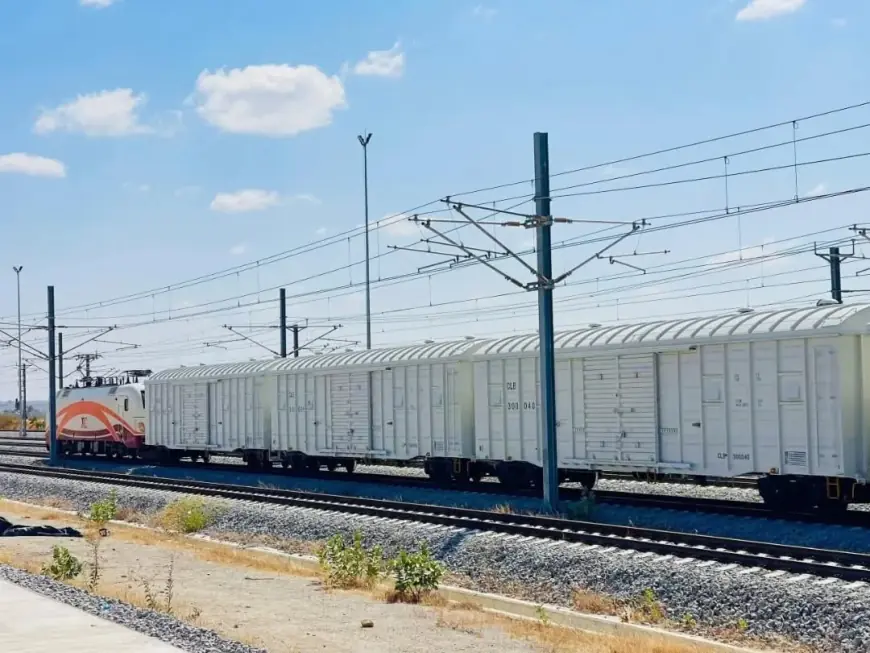
17,000 tones per day
According to the Ministry of Transport, the railway line is capable of moving up to 17,000 tonnes of cargo per day once fully operational.
The electrified rail system also aligns with the country’s commitment to low-carbon economic development and sustainable infrastructure as articulated in national blueprints such as the Third Five-Year Development Plan and Vision 2050.
Business stakeholders have welcomed the development.
Following reports of imminent SGR electric cargo trains a couple of years ago the Tanzania Freight Forwarders Association (TAFFA) urged businesses to embrace the new service, citing its potential to unlock competitiveness and enhance regional supply chains.
In the July 27 statement, TRC encouraged traders, importers, and logistics service providers to take advantage of the new line for cost-effective and reliable cargo movement, assuring them of safety, timeliness, and cargo integrity.
Friday’s milestone signals the beginning of a broader transformation in Tanzania’s transport landscape, with further phases expected to connect the SGR to Isaka, Mwanza, and beyond.
What's Your Reaction?
 Like
2
Like
2
 Dislike
0
Dislike
0
 Love
0
Love
0
 Funny
0
Funny
0
 Angry
0
Angry
0
 Sad
0
Sad
0
 Wow
0
Wow
0
